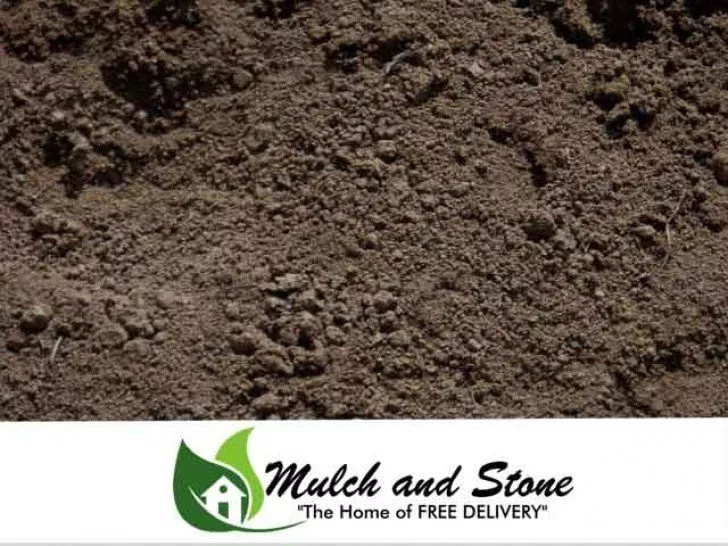
Organic Compost: The Key to Eco-Friendly Gardening
Why Organic Compost Is a Must-Have for a Healthy, Sustainable Garden
As eco-friendly landscaping continues to gain traction, organic compost has become an essential tool for gardeners and professionals alike. Whether you’re growing vegetables, planting flowers, or maintaining a lush lawn, compost made from organic materials provides long-lasting benefits—naturally improving soil health without the side effects of chemical fertilizers.
In this guide, you’ll learn what organic compost is, how it works, its top benefits, application tips, and why Mulch and Stone is your go-to source for premium compost delivery.
What Is Organic Compost?
Organic compost is a natural soil amendment made by decomposing biodegradable materials like food scraps, yard clippings, plant debris, and manure. The result is a rich, crumbly, dark material that enhances soil structure, boosts nutrient levels, and supports a healthy ecosystem underground.
Unlike synthetic fertilizers, organic compost:
-
Contains no harmful chemicals or pesticides
-
Supports sustainable gardening practices
-
Boosts microbial activity essential for plant health
Learn more from the U.S. Environmental Protection Agency (EPA) about how compost improves soil health.
Key Benefits of Organic Compost in Gardening
Using compost made from natural materials offers multiple advantages across any gardening or landscaping project:
1. Improves Soil Structure
Compost transforms clay-heavy or sandy soils into fertile, balanced ground. It improves drainage in dense soils and moisture retention in loose ones.
➡️ Learn about our topsoil and compost blends.
2. Provides Balanced, Slow-Release Nutrients
Organic compost delivers essential nutrients—like nitrogen, phosphorus, potassium, and trace minerals—over time, reducing the need for frequent feeding.
See the University of Illinois Extension for a breakdown of nutrients in compost.
3. Encourages Stronger Plant Growth
With better soil and consistent nutrition, plants grow stronger roots, produce vibrant blooms, and yield more in gardens and beds.
4. Reduces Dependence on Chemical Fertilizers
Replacing synthetic products with compost reduces the risk of pollution, root burn, and long-term soil damage.
➡️ Compare options in our Compost vs. Fertilizer Breakdown.
5. Boosts Soil Microbial Life
Healthy soil is alive. Compost supports earthworms, fungi, and beneficial bacteria—all of which contribute to nutrient cycling and disease resistance.
6. Supports Eco-Friendly Landscaping
By recycling organic waste into a usable product, compost reduces landfill waste and lowers your environmental impact.
The Natural Resources Conservation Service (NRCS) explains how compost supports long-term soil health.
Compost vs. Synthetic Fertilizer: What’s the Difference?
| Feature | Organic Compost | Synthetic Fertilizer |
|---|---|---|
| Nutrient Release | Gradual, long-term | Quick, short-lived |
| Source | Recycled organic materials | Chemically produced |
| Soil Health | Builds soil life & structure | Offers no structural benefits |
| Environmental Impact | Low—sustainable | High risk of runoff & pollution |
| Microbial Support | Encourages biodiversity | Can harm soil organisms |
The Spruce offers a helpful comparison of compost and fertilizer.
How to Use Organic Compost in Your Garden or Landscape
Apply compost properly to get the best results in your garden, lawn, or landscaping project.
Garden Beds
Spread a 2–3 inch layer of compost and mix it into the top 6–8 inches of soil before planting. It improves fertility, aeration, and moisture retention.
➡️ Shop our Garden Bed Compost.
Lawns
After aerating, top-dress your lawn with about ¼ inch of compost to improve turf health, reduce compaction, and increase water absorption.
➡️ View our Lawn Compost & Topsoil Mixes.
Raised Beds & Containers
Blend compost with garden soil in a 50/50 ratio for better nutrient content and drainage in containers and raised beds.
➡️ Need soil too? Check out our Raised Bed Soil Blends.
Trees and Shrubs
Apply a 2–3 inch layer around the base of trees or shrubs—keeping it a few inches away from trunks—to improve moisture retention and root support.
☕ Compost Tea
Make compost tea by steeping compost in water for 24–48 hours. Use this nutrient-rich liquid as a foliar spray or soil drench.
Check out Rodale Institute’s Compost Tea Guide for best practices.
Where to Buy High-Quality Organic Compost
Low-quality compost can be full of weed seeds, contaminants, or lack essential nutrients. That’s why gardeners and landscapers trust Mulch and Stone for premium compost delivery.
➡️ Browse our full range of Organic Compost Products.
✅ Why Choose Mulch and Stone?
-
Pure, Aged Materials: No fillers or synthetic additives
-
Custom Blends: Compost options for vegetable gardens, lawns, and landscaping
-
Sustainable Practices: Eco-conscious production and minimal waste
-
Fast Delivery: On-time service to your home or job site
-
Expert Support: Our team helps match you with the right compost
Explore all Mulch & Soil Delivery Options.
The Bottom Line: Healthy Soil Starts with Organic Compost
Incorporating organic compost into your garden is one of the best decisions you can make for your plants and the planet. It builds better soil, strengthens root systems, and reduces your reliance on chemicals.
When you’re ready to enrich your soil naturally, trust Mulch and Stone for top-quality, eco-friendly compost.
Order Your Compost Today and give your garden the healthy foundation it deserves.
